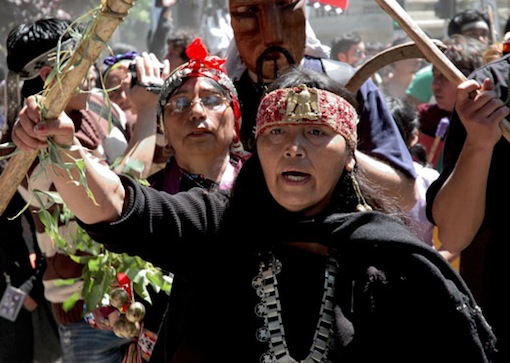
Step-by-Step Earthbag Building
by
Owen Geiger http://www.instructables.com/id/Step-by-Step-Earthbag-Building/
This Instructable explains each main step of construction for building vertical earthbag walls. Videos on my
Earthbag Natural Building YouTube channel demonstrate the process.
For those who don’t know, earthbag building uses polypropylene rice bags or feed bags filled with soil or insulation that are stacked like masonry and tamped flat. Barbed wire between courses keeps bags from slipping and adds tensile strength. The final plastered walls look just like adobe structures. Thousands of people are now building with bags to create their dream homes, home offices, shops, resorts, rootcellars, storm cellars and survival shelters. Non-profit organizations are building schools, orphanages, emergency shelters and other structures.
I got involved with earthbag building when the Indian Ocean tsunami hit Southeast Asia in December, 2004. As the director of Builders Without Borders at that time, I searched all available affordable, sustainable building methods and decided building with bags was the most practical. They’re flood resistant (used for flood control), earthquake resistant (passed an ICBO shake table test), bullet and blast resistant (used for military bunkers), and now engineer and code approved plans are available. Just search for earthbag house plans on the Internet.
 (Image: Bloomsbury)Professor John P. Clark's The Impossible Community: Realizing Communitarian Anarchism (New
York: Bloomsbury, 2013) is a masterful work, one which seeks to invert
radically the destruction of nature and oppression of humanity as
prosecuted by capitalism, the state and patriarchy by encouraging the
intervention of a mass-confluence of anarcho-communist - or
communitarian anarchist - socio-political movements. This project is
only "impossible" because its realization is heterotopic - inherently
contradictory - to the prevailing system of domination, such that it
demands the abolition of hegemony in favor of a different, liberated
world: that of the "third great epoch of history," in Clark's vision,
when "humanity finally frees itself and the earth from the yoke of
dominion." Taking equally from Buddhism as from dialectical philosophy,
Clark stresses the importance of enlightenment, mindfulness and
awakening as preconditions of revolutionary political praxis. And
although he implicitly seems to agree with the overall thesis of the (anti)catastrophist line developed by Sasha Lilley and company,
he also affirms the productivity of a commitment to truth that squarely
confronts the profoundly shocking, traumatic and even convulsive nature
of such truth: the very first page of his preface acknowledges the
sixth mass extinction in which terrestrial life is at present entrapped
and notes the "horror" of a capitalist world in which billions go
without the basic necessities of a good life. Advancing the philosophy
and practice of communitarian anarchism as an exit from the depraved
present, Clark dedicates much of his text to examining the
anti-authoritarian and cooperative spirit of humanity, as embodied in
many of the customs of pre-modern or "traditional" societies, as in the
history of Western revolutionary movements. In this sense, Clark does
well to distance himself from the Eurocentrism advanced by many Western
radical thinkers, including social ecologist Murray Bookchin, whose
imprint on The Impossible Community is otherwise nearly palpable.
(Image: Bloomsbury)Professor John P. Clark's The Impossible Community: Realizing Communitarian Anarchism (New
York: Bloomsbury, 2013) is a masterful work, one which seeks to invert
radically the destruction of nature and oppression of humanity as
prosecuted by capitalism, the state and patriarchy by encouraging the
intervention of a mass-confluence of anarcho-communist - or
communitarian anarchist - socio-political movements. This project is
only "impossible" because its realization is heterotopic - inherently
contradictory - to the prevailing system of domination, such that it
demands the abolition of hegemony in favor of a different, liberated
world: that of the "third great epoch of history," in Clark's vision,
when "humanity finally frees itself and the earth from the yoke of
dominion." Taking equally from Buddhism as from dialectical philosophy,
Clark stresses the importance of enlightenment, mindfulness and
awakening as preconditions of revolutionary political praxis. And
although he implicitly seems to agree with the overall thesis of the (anti)catastrophist line developed by Sasha Lilley and company,
he also affirms the productivity of a commitment to truth that squarely
confronts the profoundly shocking, traumatic and even convulsive nature
of such truth: the very first page of his preface acknowledges the
sixth mass extinction in which terrestrial life is at present entrapped
and notes the "horror" of a capitalist world in which billions go
without the basic necessities of a good life. Advancing the philosophy
and practice of communitarian anarchism as an exit from the depraved
present, Clark dedicates much of his text to examining the
anti-authoritarian and cooperative spirit of humanity, as embodied in
many of the customs of pre-modern or "traditional" societies, as in the
history of Western revolutionary movements. In this sense, Clark does
well to distance himself from the Eurocentrism advanced by many Western
radical thinkers, including social ecologist Murray Bookchin, whose
imprint on The Impossible Community is otherwise nearly palpable.


